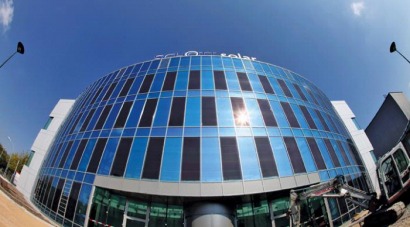
The idea of generating your own electricity for private use is appealing to more and more consumers, due to rising electricity prices and the feed-in tariff benefits that are being offered. Private consumption can be increased and controlled in an intelligent manner with the help of high energy storage performance systems in combination with an energy management system. This is where Schott has focused its attention recently, leading to the unveiling this month of Schott Storeit: a high-performance battery pack that features lithium-ion cells, a PV inverter for a 4.8 kWp system, a battery inverter and an energy management system.
This package connects with the existing house network quite easily and there is no need to connect individual components. The energy management system controls how much of the electricity generated by the PV system is actually used for private consumption, stores it inside the battery or feeds it into the power company’s grid, and thus how much electricity is purchased from the power company. The goal is to keep private consumption at the highest possible level. The battery basically serves as an intermediate storage device for the PV electricity generated during the day, which the system owner can then use at a time when needed.
Schott Storeit is monitored and controlled locally using a 5.7-inch touchscreen monitor. The system is a product of high quality German manufacturing.
The storage technology is of particular importance to this type of system. The lithium-ion cells used are known for their extremely long service lives even after thousands of charging and discharging cycles. Furthermore, they are considerably more environmentally friendly than the batteries used in the lead-acid or lead-gel techniques that are also available today. Unlike these, no toxic fumes or acids are able to escape from lithium-ion batteries due to how they are built.
[Inset: Schott Solar's headquarters in Mainz (Germany), boasting 82 solar modules integrated into its façade.]
For additional information:

